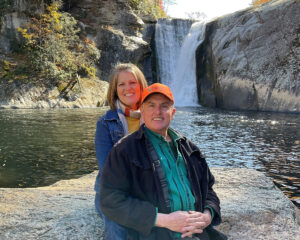
THOUSAND OAKS, Calif. (BP)–“I love Harry Potter. I think it would be so cool to be a witch,” Sharon, age 11, says.
That’s my answer to anyone who says J.K. Rowling’s adventure series is harmless fantasy.
While the Harry Potter book and film series has held a hypnotic fascination for youngsters, its thematic foundation is troubling. Arguably, perceptive children can view such material without succumbing to the snare of the occult, but it would be naive to think that movies and TV programs containing witchcraft are not aiding the rise of Wicca in our culture.
In a television special titled “Hollywood Spirituality” which aired several years back on E! Entertainment, Raven Mounauni, a professing witch and owner of an occult paraphernalia store, credited the 1996 movie “The Craft” with inspiring young women to explore the world of witches. “I get a lot of teenage girls in here. You can always tell when ‘The Craft’ has been on TV, ’cause we get a big influx of girls looking for supplies.”
Occult practices shouldn’t be considered just diverting amusement. Ouija boards, psychic readers and other forms of misleading supernatural entertainment should not be taken lightly. In Leviticus 19:26 we are instructed, “Do not practice divination or sorcery.” There are several warnings in the Scriptures, both Old and New Testament, making it clear that we are to avoid witchcraft or anything associated with the occult. So if God is instructing us to avoid occult practices, how can we justify using it to entertain ourselves?
This may not be a popular view right now. The first Harry Potter film installment earned $969 million worldwide. J.K. Rowlings’ five books on the young wizard have become a phenomenon, allowing the author to become the richest woman in England, with assets beyond $1 billion. That would indicate that many parents find nothing wrong with these children’s adventures.
There are even a couple of books out right now exclaiming parallels between the Potter books and the Gospel. One author suggests the books help relate Christian themes and truths, opening the door for talking about things such as right and wrong, the nature of faith, loyalty, bravery and trust. Honestly, I think that’s a bit thin. Yes, Rowlings’ themes deal with honor, friendship and self-sacrifice, but the kids in Harry Potter gravitate to sorcery in order to accomplish these attributes. And even if there are positive elements associated with the series, you simply can’t ignore the witchcraft equation.
Members of Wicca teach a philosophy that embraces no absolute truth or sin and replaces the patriarchal male creator God of the Bible with a belief in both male and female gods. Its credo instructs members to embrace spirits and conjure spells in order to control their lives and the lives of others. There are millions of practicing witches worldwide. Indeed, Wicca has become one of the fastest-growing religions in the world today.
OK, it’s good that children are reading. But what is it they’re reading? Shouldn’t that be considered? When an author makes $1 billion on five books that have sorcery as a main theme, and renowned secular critics hail the films as incredible filmmaking without examining their occult roots, I question what’s really behind this phenom.
Is it merely entertainment? Or is there a dark spiritual source feeding and supporting it? I realize that may sound like a stretch, but often Satan is most deceiving with a glossed-over package. Wouldn’t it be a shame if kids got pulled into witchcraft, while their folks thought of the books and films as merely children’s fantasy?
–30–
Phil Boatwright is a film reviewer and editor of The Movie Reporter, on the Web at www.moviereporter.com. (BP) photo posted in the BP Photo Library at https://www.bpnews.net. Photo title: HARRY POTTER AND THE PRISONER OF AZKAB















